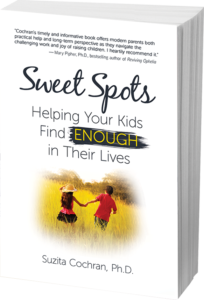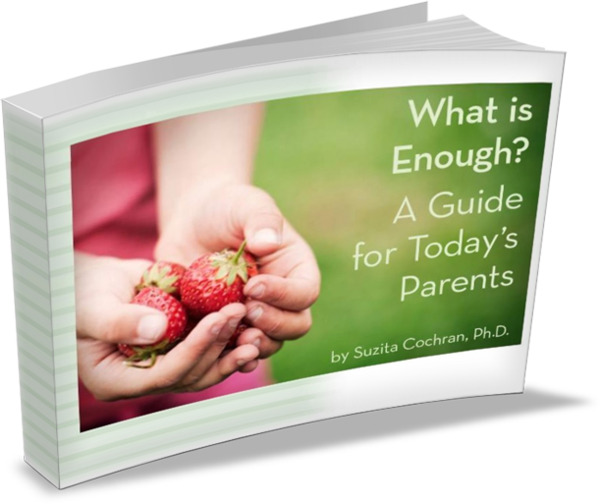 A few years back, I got my haircut from a woman new to our local salon. She looked quite young, and later told me she was a part-time college student in her late twenties who cut hair 2 days a week. She was one of 9 children and had learned to cut hair to pay her way through college.
A few years back, I got my haircut from a woman new to our local salon. She looked quite young, and later told me she was a part-time college student in her late twenties who cut hair 2 days a week. She was one of 9 children and had learned to cut hair to pay her way through college.
It’s likely this young woman’s family circumstances forced her to learn a marketable skill at an early age, but I perked up when I heard her story because I’d already been thinking about a similar strategy for my kids.
With the recent shifts in our global economy, it’s risky to exit one’s twenties with just one work skill or profession in hand. Why not encourage our kids to enter adulthood with more than one money-making possibility available to them? I think of this as having a profession and a fall-back skill. A fall-back skill would be one that people are continually willing to pay for, even during a recession.
Possible fall-back skills:
1. Haircutting
2. Plumbing
3. Fence building
4. Other basic carpentry skills
5. Certain computer or internet skills
6. Sewing
My kids are still young, who knows where their interests will lead them? It’s possible they’d select one of the above options as their main work. To that I’d say, “Fine, but choose another area as a fall-back skill.”
These days we parents do so much thinking and maneuvering regarding after-school activities. Should he learn to play an instrument? Should she join the soccer team now while everyone is still new at soccer? Or perhaps her time would be better spent participating in math club after school. It’s easy to focus only on sports and academics for our children, but job skills are another valuable area.
I recently read Plenitude, by Juliet Schor. It’s basically about trading our old, broken down, unhealthy economy for a new type of economy. She presents some extremely thought-provoking ideas and the research behind these.
In Schor’s “plenitude economy” everyone should work fewer hours on the job (like it so far?) which research shows actually reduces unemployment.
Sociologists Anders Hayden and John Shandra also found that hours of work are a significant predictor of one’s ecological footprint. Reduce work hours, reduce overall energy consumption. Households with more time flexibility can engage in slower, less resource-intensive activities, Schor notes.
“Recovering one’s time makes ‘self-provisioning’ (making, growing, and doing things for oneself) possible, revealing a liberating truth: The less one has to buy, the less one is required to earn.”
Shor also uses the term “time wealth” in comparison to monetary wealth. I love this concept! She cites studies which have found that being time-affluent is positively associated with well-being, even when income is taken into consideration.
My fall-back skill plan would also give the kids the “I can do this myself” mindset that underscores self-provisioning. My hope would be that possessing do-it-yourself skills would allow my kids to one day live the need-to-buy-less-and-therefore-earn-less lifestyle, if they chose.
Since I have elementary-aged children, I’m in the ideas phase of this venture. Some thoughts regarding helping kids learn a fall-back skill:
1. Volunteer as a family for Habitat for Humanity. This one underscores many of our family’s values and I had been simply waiting until my youngest was old enough to safely and usefully volunteer there. Recently, however, I discovered that you need to be 18 to volunteer at Habitat. Thus, I am now looking for a similar organization. Anyone know of a good one in the Boulder or Denver areas?
2. When the kids are older, travel to the Shelter Institute as a family to participate in one of their weeklong programs. This family run organization has been teaching the skills of homebuilding, in addition to fine woodworking, for years. And it’s located in beautiful New England!
3. Mobilize the skills of friends and neighbors. When our neighbor, Danny, was building a chicken coop, I shooed the kids over to watch and lend a hand. Then after the coop was in use, they learned chicken care (probably not a highly marketable fall-back skill, but good in other ways.) I need to notice the many skills my neighbors have and set my kids up as worker’s helpers on their projects.
There are also psychological advantages to knowing you possess a fall-back skill. Today, few people will remain at one job or profession throughout their lifetimes. Having a fall-back skill in your back pocket would allow you to face a layoff or change of profession with much less apprehension.
Just don’t ask me what my fall-back skill is. I think I’m still developing it.
____
Updates:
I asked my kids to make a green New Year’s Resolution this year, one that would help the earth in some way. I said I’d help them if they needed ideas, then stepped back and tried not to be too intrusive.
Stephen (12) came up with writing to our congressional reps about a climate change issue.
Daniel (10) said, “My resolution is to not be as difficult about going to yoga.” We decided that this was enough of a “green” resolution because if more people did yoga, climate change would be more under control. This was merely our guess, but it seemed plausible.
Those of you who remember my post, My Humble Warriors: Yoga with Adolescents and Tweens, will recall that Daniel is the one who always gives us a hard time about yoga. I was quite surprised, but delighted to hear this resolution.
Annie (7) decided that each week she would write down something good to do for the earth and then she would take this note around to our neighbors and ask them to sign off on it too. I know, she clearly doesn’t have the resolution concept down yet. But she was so eager about this plan that I just couldn’t burst her “green balloon.” That day she wrote, “I’m going to turn off lights to save the Earth’s electricity,” on a piece of paper and took it to 4 neighbors who also signed off on this pledge.
Todd and I made green resolutions too and shared them with the kids, but they weren’t half as colorful as the ones the kids generated.

 Sweet Spots: Helping Your Kids Find ENOUGH in Their Lives.
Sweet Spots: Helping Your Kids Find ENOUGH in Their Lives.


Would baking pies count? A friend of mine who used to be a radio producer just started a business teaching people how to bake pies (and also make beautiful cookies) out of her home. Or jewelry making (or any metal working). Go on etsy and you’ll find a lot of people whose crafty interests are bringing in some extra money!
I will go on etsy, only I fear I will buy someone else’s skill rather than generate ideas for my own. I’ll go on when I’m feeling strong. I hear fun things about that site all the time.
Suzita
What great ideas! Cooking might be one a child could learn at his/her parent’s knee. Everyone loves/needs good food! Love reading these posts.
I like this idea because gives me a new perspective on something I value. I feel that it can be too easy to do basic life skills for children. There will be payoffs in the future, but the benefits are also immediate. My kids and I enjoy baking, cooking, gardening, cleaning (really!) doing laundry, shopping for bargains, and doing some basic home care items together. Doing these activities is grounding and nurturing for us, a rest from the hustle bustle of school and activities. I am always gratified and encouraged when they are growing in making skills their own, showing how much impact these simple things have on the way they perceive the world.
Your idea of having a fall back career based on basic skills definitely gives me food for thought as well–it’s comforting not to have an all or nothing attitude toward “what do I want to be when I grow up?”
We love Annie’s resolution. We thought we were really good at turning off lights, but since we signed her pledge we are turning off lights all the time. Can’t wait for the next one.
What a great post. Totally agree on all fronts. Our kids are younger (8, 6, and 20 months) but still, I like to think we’re exposing and involving them in hands-on activities that are 1) important not to lose sight of in our Throw-Away Culture of Convenience; 2) plant a seed of self-sufficiency; and 3) as you put it, help foster fall-back skills.
Cooking, baking, sewing and working our vegetable gardens are just part of our everyday lives. We haven’t had a TV and/or cable for over three years so we’ve been able to focus on other things that bring us closer together. What we’ve found is that the kids love being a part of all this and learning. As they get older, I’m sure this skills portfolio will expand.
(So glad to have found P.F.R.!)
Be well,
Bill
So glad you liked the piece. I’ll be following your blog to see what ideas work especially well in your family too! I agree that the kids tend to truly enjoy these types of learning activities. It’s never been a battle to get them to take part.
Suzita
Glad I found you (GRS)! I also have three kids (two boys and a girl between). You know, a couple of months ago my co-worker and I were having a conversation about crafts because she found out I crocheted. My co-worker is from Uruguay. She said that is a huge difference she’s noticed in educations and gender roles between Uruguay and the States. In Uruguay, handiwork is taught in schools and has as much importance placed on it as regular core subjects (math, science, etc.). Why? Because in Uruguay, there is a huge shortage in jobs and they realize that people need fall-back skills. So they teach as many as possible. Also, they figure this teaches people how to make the most of what they have which reduces expenses if they aren’t able to find work. My co-worker knows how to bind books, weave baskets, embroider, and do some sort of rope craft like macrame among many other things. Also, there is absolutely no gender partiality. Boys learn this as well as the girls. Boys crochet and girls learn carpentry for instance. I found this really interesting and loved the idea of the fall-back skill. I like that you touched on it too. Smart!
I love the Uruguayan educational way you described. Wonderful that it’s so supported in the schools. I wish it were more supported in our public school system. Thanks so much for your interesting comments. Good stuff to think about!
Wonderful post (and I love the name of your blog)!
Just wanted to point out that while your point about over-focus on sports/activities are well taken, they can also be the basis for very marketable job skills. Some examples from our 5 kids: my daughter is a competitive equestrian and as a result is very comfortable/skilled around horses of all temperaments – she made a killing braiding horses for shows; my oldest son is s trick bike rider – he parlayed that into a bike company sponsorship and a summer job making bike bags; next son down is a very proficient swimmer – parlayed that into a summer life guarding job; next son down is a lacrosse player and got gigs ref’ing lacrosse games for youngsters; 2 of the boys transitioned from a couple years of piano lessons (which they hated at the time) to playing in bands with their buddies.
Anyway, I think the key is to help the kids think creatively about how they can parlay their passions/crafts into marketable skills and nudge them to do so early on. Nothing like getting paid for what you love doing!
You make a really good point and thanks so much for listing all those inspirational examples. It helps me to think even more broadly about this area. Your kids sounds really interesting and unique. Thanks again for your comment!